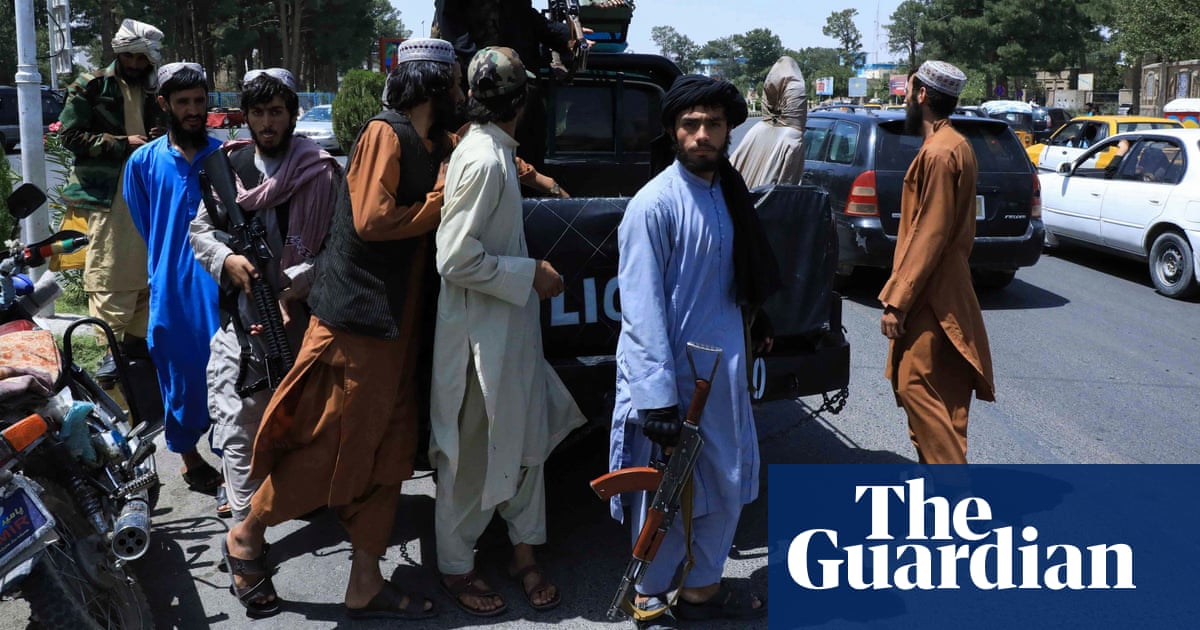
The US has started evacuating diplomats from its Kabul embassy, two US officials have said, as the Taliban took control of the key eastern city of Jalalabad, leaving the Afghan capital as the last major city under government control.
“We have a small batch of people leaving now as we speak, a majority of the staff are ready to leave … the embassy continues to function,” one of the US officials told Reuters, speaking on the condition of anonymity.
It had been expected that the evacuation of most diplomats would begin on Sunday, as Taliban insurgents continued lightning advances that brought the Islamist group to the door of Kabul in a matter of days.
Hours after the fall of Jalalabad, helicopters could be seen repeatedly arriving and departing the US embassy in Kabul, as diplomatic armoured SUVs also left the site. Wisps of smoke could be seen near the embassy’s roof as diplomats urgently destroyed sensitive documents, according to two US military officials spoken to by the Associated Press.
On Saturday night, Kabul was plunged into darkness and communication networks appeared to be down, hampering desperate efforts by its residents to escape the bloodshed many fear could lie ahead.
Taliban advances have brought them to the edge of Kabul’s Char Asyab district, just seven miles (11km) south of the capital city, lawmaker Hoda Ahmadi told the Associated Press.
The capital is gripped with fear of street fighting or a takeover by a vengeful Taliban. Panicked residents formed long lines outside banks, hoping to withdraw their savings, and some branches appeared to have already run out of cash.
Residents near Pul-e-Charkhi prison outside Kabul told AFP they had heard gunfire coming from the facility – possibly the result of an inmate uprising.
Early on Sunday, the Taliban took control of the key eastern city of Jalalabad, which means the Taliban have secured major roads connecting the country to Pakistan.
“There are no clashes taking place right now in Jalalabad because the governor has surrendered to the Taliban,” a Jalalabad-based Afghan official told Reuters. “Allowing passage to the Taliban was the only way to save civilian lives.”
A western security official confirmed the fall of the city.
Militants posted photos online early Sunday showing them in the governor’s office in the city, the capital of Nangarhar province.
“We woke up this morning to the Taliban white flags all over the city. They entered without fighting,” said Jalalabad resident Ahmad Wali.
Jalalabad is Afghanistan’s fifth-largest city, and lies to the east of the capital. Its seizure follows the fall in the north of Mazar-i-Sharif, the country’s fourth-largest city, on Saturday.
Show more
Overnight, secretary of state Antony Blinken tweeted that he had had “productive” calls with the Canadian foreign minister and Afghan officials to reach a diplomatic solution.
Earlier, president Joe Biden said America would not reverse its decision to leave Afghanistan, despite the Taliban advances. “I was the fourth president to preside over an American troop presence in Afghanistan – two Republicans, two Democrats. I would not, and will not, pass this war on to a fifth.”
He pledged only an increased deployment of 5,000 troops to accelerate the departure of US diplomats and their Afghan allies, and warned the Taliban that any injury to Americans would prompt a “swift and strong” military reprisal.
On Saturday afternoon, president Ashraf Ghani addressed the nation. Kabul had been swirling with rumours that he would step down to pave the way for a peace deal to spare the capital and its population of over 4 million people.
Instead he said he would reorganise the military, and made vague reference to “starting consultations” across society and with international allies.
Earlier on Saturday, Logar province, just south of Kabul, central Daikundi and the capital of Paktika province on the Pakistan border were the latest areas to fall to the militants.
In Mazar-i-Sharif, Taliban fighters quickly took charge. “They are parading on their vehicles and motorbikes, firing into the air in celebration,” said Atiqullah Ghayor, who lives near the city’s famed blue mosque.
Warlords Abdul Rashid Dostum and Atta Mohammad Noor, who had led a militia resistance in the city to support government forces, had fled to Uzbekistan, about 19 miles (30km) to the north, an aide to Noor said.
Noor later tweeted that they had been betrayed by the military and were in a “safe place”, adding: “I have a lot of untold stories that I will share in due course.”
With Reuters, Agence France-Presse and Associated Press








